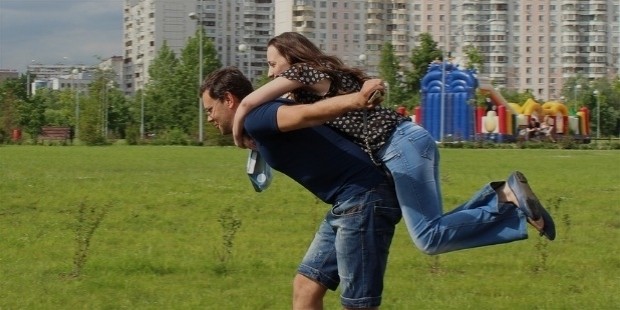All You need to Know about Passive Aggressive Behaviour

Passive aggressive behaviour is an expression of hostility in which people don't show their emotions directly. They are mostly stubborn in a particular way. They are difficult to adapt to any changes.
Passive aggressive behaviour can be seen as a habitual pattern of resistance to negative attitudes in response to requirements for normal performance levels. It mostly occurs at the work place where demands to get the target results are high. People with such behaviour avoid speaking their heart out and because of that they often face problems like low self confidence and lack of decision making capabilities.
Signs that you are being passive aggressive
1. Complaining about Mistreatment

People who are passive aggressive are often more careful about what others feel instead of their own emotions, that's why they always seek permission from others, because they live in isolation .They often can be seen blaming or complaining other people that they don't get fair appreciation or people are not good listeners to them. They can't digest even a small comment of sarcasm. They feel that people are insulting them indirectly.
2. Scared of Being Alone

People can easily notice a lack of confidence in a way the passive aggressive person speaks. They hesitate a lot before speaking their mind. They are really scared of being alone. They hate being judged too, so they try to keep their words with them. Though they are not social but as they are scared of loneliness, they try to pretend smart and aware of what's going on around them.
3. Appear Hostile

Mostly people will see them taking the whole blame of any failure. They take the responsibility of not getting things done and due to that, they can blame themselves for everything they have done or they haven't done. Though you will feel that passive aggressive people are grounded, on the contrary, they sometimes try to pretend far more superior from others just to hide their own insecurities. They will confuse people with a sudden hostile or superior attitude at the same time.
4. Unwilling to Speak Openly

Passive aggressive people are often very soft spoken. They are not confident enough of their words. They speak soft because of their lack of confidence. They try to avoid attention whether they are in a board meeting or at a family get together. They try not to get heard in public. You can always see a passive aggressive person with a lower volume among people. They are unwilling to speak openly as the fear of not being appreciated is always around passive aggressive people.
5. Withdraw from Uncomfortable Situations

Sometimes with their body language or sometimes with their weird behaviour, they always show their discomfort. They may pretend that they are confident enough to walk even the red carpet but they cannot hide their uncomfortable expression for a long period of time. If they don't see the argument going their way, they will always withdraw themselves with a perfect excuse
6. Low Level of Self-Confidence

It's a very common behaviour of any person who is passive aggressive to be acting sweet and content but resentment lurks just below the surface. They can easily keep their preferences aside just to please others. They will make sure that they have no issue to say "Yes" when they are desperate to say "No".
They play an excellent role of being an obedient child but deep down they feel irritated with this, they just pretend to be sweet so that people will like them. Passive aggressive people know how to get favours back.
It is very difficult to recognize if the person is passive aggressive. If you pay attention to what they say and what they do, only then you would be able to recognize their passive aggressive behaviour. They often fail to communicate with confidence. It is the most difficult communication style to deal with.
Examples of Passive Aggressive
1. Never Giving Straight Answers

Passive aggressive people often view demands as unfair and unjust. They hate to say what they want, so they get annoyed for making demands. They see it as an act of insult. They don't realize that they can refuse and they did not have to agree to the demands. They are not straight forward people who speak what they feel like. Instead, a passive aggressive person will do anything to avoid the issue. They are very good at saving themselves from being asked counter questions.
2. Deliberately Delaying

They either hate to say no or their hesitation doesn't allow them to do so. Instead of telling the other person that they can't fulfil their demands, the passive aggressive person will try to delay the request as much as possible. It is a kind of punishment for a person if he makes a demand to a person who is passive aggressive
3. Making Mistakes Intentionally

As they refuse to say no to demands of others, a passive aggressive person will always deliberately perform a poor task. They will do it with the hope that the person will not ask for favours again.
4. Attitude towards Others is Hostile

A person who has a passive aggressive behaviour will always assume that the other person knows how he or she must be feeling. They will not be straight forward; instead they would expect you to read their mind without uttering a word. It never crosses their mind that they can tell the person on face without feeling pity. They behave like a hostile to others opinion. They have a mindset which promotes to gain sympathy.
5. Enjoy Taking a Lead In Conversation

Passive aggressive people are very good and warm. But, later, you will realize that they actually attack on you with a cheap comment. When they don't agree with something, they often get offensive. They call it unfair or as an act of injustice.
They will try their best to avoid the real conversation with logical chords. If they don't get enough appreciation, they complain till the end of the argument to prove their worth.
6. Silent Treatment

It is hard to recognize the behaviour of a passive aggressive person. They can be highly offensive or they can be like a silent river; all depends on their mood. If they don't agree with someone or something, they refuse to utter a word. Even if they have a big problem with you or with your views, they choose not to tell you and you will be left with a confused look.
Dealing with passive aggressive behaviour
It is difficult to deal with passive aggressive behaviour. They sometimes behave like a silent killer or sometimes as an offensive fox. Be it a personal or professional relationship, both requires lots of patience and understanding to deal with such people.They create many moments of frustration, anger, and despair
1. One Should not Over-React

If a person is a self pity, give lots of excuses, seems difficult to speak their mind or if they are looking bound to please others, you can tell that person is a passive aggressive person.
It can be due to any incident that might have happened in the past or it can be natural. In both the cases, you should know how not to be impulsive with a sudden attack of anger or mood swings. To handle this difficult behaviour of any person the best option would be not to over react. Just keep it normal, it might help the person to realize their own mistakes.
2. History of Passive Aggressive Person

If you get to know about the history of passive aggressive behaviour, it will be a lot easier for you to deal with them. You don't have to be their counsellor but with a handful of knowledge about their behaviour, you can handle the boat more efficiently.
It can provide valuable insights of past suffering. You don't need to go into deeper details at first. Try to ask general questions about background of a passive aggressive person. They often show their aggressive behaviour when they feel powerless. They react out of fear and anxiety.
3. Keep your Distance

They are shy and hesitate a lot to speak their heart, no matter what relationship you have, but when it comes to a passive aggressive person, try to avoid questions and conversations which can trigger their worst instincts.
Sometimes, they can open up a lot if they can see a comfort zone with you, and you might get to know all the secrets behind their moody behaviour. It could be difficult at first but later you can see that by giving them an encouraging shoulder, you shall eventually become their best friend but it would be great to keep such company at an arm’s length
4. What Made them Passive-Aggressive?

Most of the times you have to act like a parent for them. They love being dependent on someone. You will feel like a caretaker in a personal relationship with them. They also expect that their partner should save them from crises most of the time but wait that doesn't mean that you will try to judge or change their behaviour. It would be like calling a sea storm to hit your boat.
They love being appreciated, being loved, being cared but being judged ? ............... A big no for them
5. Try to Appear Calm and Keep Composure

Humour is a powerful tool to deal with passive aggressive person. Make them laugh; they can actually turn into new human beings if given a chance. A passive aggressive person enjoys the company of a funny person.
They feel less challenged and can behave the way they want without being scared about, "what the other person would think" as most of the time they avoid socializing because of hesitation. Also a passive aggressive person would appreciate if you try to be calm with their flaws; they feel attacked if you try to change even a bit of them.
6. Don't try Tit-For-Tat Strategy with Them

Most of the time, passive aggressive people live in a period of isolation because they feel that they don't have a voice or that nobody is interested in their opinion. When appropriate, try to include them in discussions on challenges. Ask them for their opinion; try to be a good listener with them.
Even if you don't agree, give a look that you agreed what they have said and later you can follow your own path. don't try to suggest them anything or revert the same comment they have just used for you or some other person, just keep in mind that tit for tat strategy can go all against you or things may get worse at the end. They may look like a shy person at first but once if you attack in their personal space they get really offensive.
It’s not all of a sudden that a person becomes passively aggressive. As the word ‘passive’ itself signifies that the process is quite gradual and usually even the person at the very beginning is not aware of these changes that happen in their behaviour. There can be many reasons behind their gradual change in attitude and behaviour.
Some believe that it is some events in their upbringing that leaves a mark on their unconscious mind which is what makes them difficult to express their emotions openly in front of other people. And, when they are unable to do so for a continuous period of time, they tend to become frustrated with themselves and start acting more passive.
In other situations, they find themselves repressing their feelings for such a long time that it becomes an easier way for people to express themselves in an unconventional way because that’s what makes pour out their heart without any difficulty.
In certain cases, there can also be some sort of jealously with either their sibling or friends that eventually make them act in an odd manner. They might have had a lot of issues with their relationships, mood swings, complex though process which makes them change their behaviour in order to find some peace in their mind.
We usually see passive aggressive behaviour among children who have been going through a lot of parental pressure and restrictions during their childhood. The child starts developing a secretive behaviour to fight against the repression and that slowly and gradually starts formulating till their adulthood.
Though we see passive aggressive people being guilty of their actions but there is nothing much they can do about it as they are in no control of their thoughts, behaviour or even actions. This makes them feel enrages, frustrated and humiliating at different points of time.
How to Overcome Passive Aggressive Behaviour
One not needs to be offensive to say no or refuse anything on the table. It can be done in a more positive manner. We should respect difference of opinion of people. We all have different mind and vision, choose different path with different designs to carry on our own journey
1. Identifying Your Behaviour Causing Problems

Don't take everything personally. People might be talking about with a different point of view. Just try to understand their perspective. Be more casual than having a serious vision of everything around you
2. Try to not Say Anything

If you are afraid of something, confront it without being shy. When you confront your mind, it becomes easier to speak and you will feel more confident about yourself.
Trust yourself enough to give a hand of good advice and speak out your heart if needed. Don't hesitate about your words. If you don't agree with anything, that's okay, but don't use criticism. That will only gain you a bad publicity which is of no use
3. Write it Down

Whenever you face a difficult or challenging situation, just write it down with an answer. Whatever comes to your mind, you don't have to think about the world for writing your personal journal. Write your fears, your doubts, your hesitations, and your heart. Just write and you will be a more positive and a confident person next time.
4. Do not Always Show Your Real Personality

Don't deny what you feel. That will do nothing but create more problems for you. You don't have to pretend to be someone else; you just have to acknowledge your own self so that you can face the mirror with eyes full of confidence.
Deal with your emotions in a healthier way. But don't make it habit of showing your emotions to everyone and everywhere. Remember that you are just speaking your mind. Don't use your emotions as a tool to gain any kind of sympathy.
5. Meditation

It is the best medicine to meet your innermost thoughts. Close your eyes, count your breaths and enjoy solitude. In silence, you can meet yourself. Closed eyes can actually show you the reality of your mind. Meditation calms your inner fears and makes you more courageous to face the world. It can turn a negative mind into positive one.
At the expense of your own mental peace, talk to people being straight-forward
It's not necessary to say yes if you don't feel like. You are not here to fulfil demands of others. What people think of you is none of your business. Do your good, say what you want and do what you feel like doing. Life is short to being in controlled by other people.
Speak your heart, don't be slave to others, save your mental peace. If you don't like something, point that out but remember that can be done with a polite tone too.
A passive aggressive behaviour is a quiet challenging and even difficult to recognize but with a nice study and patience, anyone can overcome and understand it. You just need to pull yourself out from isolation.
Nobody is perfect and we all face challenging situation both in personal and professional lives. Being offensive will add more anger to our life. Focus on your flaws and change them by taking a step in a positive direction.









